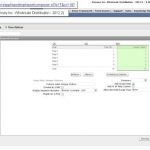One reality that every computer user has to face is the need for a good anti-virus client for their machine. Almost everyone gets online or shares files with someone, and that opens the door for viruses. It used to be that virues would rewrite your motherboard’s BIOS or delete data, but nowadays the vast majority of viruses just want to replicate themselves and install adware. So the good news is many viruses won’t really hurt your computer much. The bad news is that they are very good at propogating around the ‘net, and you can expect to come across virus-infected files in email and on web sites quite regularly, especially once you’ve got on a few spam lists.
In the 16 years I’ve been using PCs, I’ve used a lot of AV clients. The bottom line is that any major AV client will work fine at detecting viruses. No program will catch them all, but they all catch most of them. The real difference between them comes down to features, interface, performance, and cost.
What about a firewall?
Chances are, you don’t need a firewall at all. Not only do they cause all kinds of weird networking problems by blocking safe traffic, but they have a big tendency to give false positives, making you think they are doing something. Basically a firewall is for blocking access to your machine from someone else who initiates the request. 99% of the pcs out there are either behind some kind of NAT already, so no one can access your machine to begin with. If you have a router, chances are you are behind a NAT. NAT stands for network address translation – it allows pcs with a private address to access other networks. To test if you are behind a NAT, go to start > run and type cmd, then enter. At the dos prompt, type ipconfig and hit enter. It will display your ip address. Then go to whatismyip.com. It will tell you what your Internet address is. If they aren’t the same number, you don’t need a firewall.
AV clients I didn’t like
- Norton: Not only is this one of the most expensive AV clients around, but it’s also the most annoying. The interface is always popping up and asking to update. It’s also quite a resource hog if you don’t happen to have a blazing fast machine. Finally, it comes bundled with a firewall, which most users are better off without.
- PC-Cillin: This is another one that comes in a bundle with spam filtering, firewall, and a bunch of junk that you don’t need and that they don’t do very well. When it updates it pops up a dialogue box, which I find very annoying. I have had to disable the firewall just to get windows networks to talk to each other; it’s not very smart. It’s also pretty expensive, and most people really only need AV.
- Kaspersky: This is actually not too bad a client, but it tends to use a lot of resources. On the plus side, it doesn’t come in a huge package with junk you don’t need.
My favorite: AVG
You might have already guessed, but my all-time favorite anti-virus client is AVG. Not only is it low in resource utilization and handle scans and updates in the background, but it’s very well priced. In fact, they have a free (for personal use) version. I highly recommend it to any user – it costs nothing to try it out, or to use at home. It is updated daily (using Akamai for super fast downloads for those who buy it) and scans email quickly and thoroughly.
Servers & Networks
One of the real strengths of AVG is their network support – they make clients for several flavors of linux and have server and networked versions. The server version works well and is unobtrusive, but the admin function really shines. With it you can deploy installations, monitor all the clients on the network, push updates and scans, and control any user setting. It really allows for top-down management of multiple AV clients, and can serve as an update source as well.
For home users, choosing the best AV client really comes down to cost and preference. I recommend downloading the trials or free versions of AV clients you are interested in and testing them out for a while. That, or you could just get the free version of AVG and forget about it 😉
More from Fourth Wave
David Norris
Latest posts by David Norris (see all)
- NetSuite Announces Plans to End Promotion Functionality for Site Builder - January 16, 2020
- Most NetSuite Websites Are No Longer Tracking Safari Conversions for Adwords - November 20, 2017
- Make Your NetSuite Site Builder Site Secure – HTTPS Throughout - May 28, 2017
- An Introduction to Automating XML Sitemaps for NetSuite Companies - November 13, 2016
- An Introduction to NetSuite’s Reference Checkout & My Account Bundles - April 18, 2016






